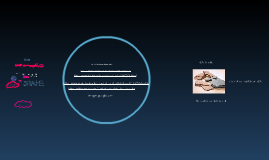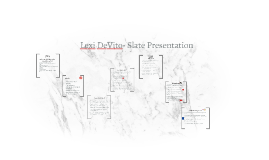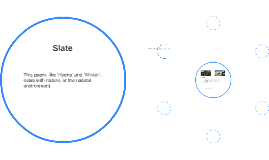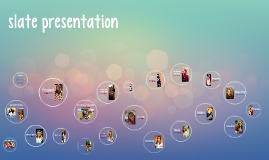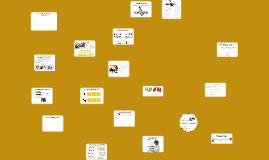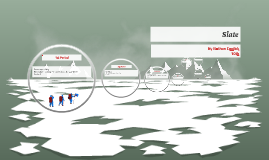Slate
Transcript: Active learning Word Choice and Imagery As you read the poem for the first time, circle every use of these words: go/ goes, fade(s), decay(s) How would you describe the mood or atmosphere of this poem? Sound effects How many more negative words can you see? List them. For each one you found, write yourself a note to explain how this word has negative connotations in the way it is used here. Their heels kicked flint, chalk, slate.’ ‘My place is to pick you clean and leave your bones to the wind.’ How does this make you feel? Slate Count how many times the narrator uses the word ‘I’. In which stanza is the word ‘I’ used most? Count how many times the narrator uses the word ‘you’. In which stanza is the word ‘you’ used most? Circle any words which are new to you and for which you need an explanation. The overall message Personification 1. Two body parts named in the poem 2. Three things Scotland did Pathetic fallacy ‘I sniff a broken drum.’ ‘broken’ suggests deliberate, planned, human destruction of the homes of other human beings. Once more, just when we think the hyena is really nasty, he reminds us of how evil and dangerous we humans can be. Morgan uses present tense to make Scotland seem eternal. He makes Scotland seem mighty and powerful, even though at the time, Scotland wasn’t strong enough to get its own assembly. His message: how much Scotland matters. Don’t get delusions of grandeur; don’t start to think that you are wonderful. From there, you can take the idea in two directions. The 1979 Scottish referendum Morgan subverts a typical stereotype There are three similes in this stanza. (Remember, a simile is when one thing is compared to another using the word like or the word as.) Find the three similes and write them down What do all these similes have in common? The hyena asks four questions in the poem. the second and third questions are here in stanza 3, starting in the opening line of the stanza with ‘Do you like my song?’ This is a euphemism, a gentle way of saying something unpleasant. The last two lines of this stanza contain six very short statements. I trot I lope I slaver I am a ranger I hunch my shoulders I eat the dead The newly created Scotland is empty and hungry without us. A nation isn’t really made by geology, a nation is made by its people and by what they do. We realise that he is not really very interested in our answers . He answers the last question for us: ‘I am not laughing.’ Dramatic monologue 1. What is happening? 2. Who is speaking? 3. Are there any words you need an explanation for? Hyenas can hunt but are better known for scavenging This one seems to admit this when he tells us he is ‘a good match for a dead lion’ – he’d have no chance against a live one. Decide which of these two explanations you agree with. Spend five minutes making notes and collecting quotations from the poem to back up your chosen interpretation. Then find someone who believes the other way of looking at the poem. Try to change each other’s minds. ‘slate’ There are many ways for death to come. The End, and The Future Meeting the text The expression to kick your heels means to be waiting, perhaps impatiently. Scotland is still waiting for a better future. ‘Winter’ is a nature poem about death Morgan’s other poem ‘Hyena’ is a nature poem about death too. Word choice Word choice This poem, like ‘Hyena’ and ‘Winter’, deals with nature, or the natural environment. In this stanza we see his second use of an African word, ‘veldt’ which means an area of open grassland. He makes it sound like a forbidding place when he says that ‘The moon pours hard and cold on the veldt.’ The moon is often used in poetry to suggest romance and beauty, but by his use of ‘hard and cold’. This isn’t the romantic civilised world, it’s the hyena’s more brutal one. Sentence structure metaphor of the swan as a ‘ghost’ The first three verbs are ‘goes’, ‘decay’ and ‘dies’ word choice of ‘stark’ tells us that this scene is a barren, bleak and desolate one. Getting in Stanza 5 Hyena ‘The slave of darkness’. Has connotations of evil, as if he’s some kind of vampire or monster, something dark and horrifying. ‘The ruined places.’ Highlights the devastation caused by humans, suggesting humans can be just as evil and horrifying too. ACTIVE LEARNING Adapted from notes by Jane Cooper. This use of short statements again underlines how sure of himself, how definite, the hyena is. Some are threats too: he is slavering, his mouth is watering at the thought of eating something soon, perhaps us! This poem, like ‘Hyena’ and ‘Slate’, deals with the natural environment. In 1979 Scottish voters were offered a referendum on whether Scotland should have its own Assembly. Scotland didn’t get it. Narration Meeting the text Some readers think that the hyena himself has delusions of grandeur. He thinks he is an awesome beast, and something to be terrified of. He is a legend in his own mind. However, he is only fierce when his enemy is dead. He’s like someone






